- Home
- Charlaine Harris
(4/10) The Julius House Page 5
(4/10) The Julius House Read online
Page 5
“Please don’t smoke in here,” I said as pleasantly as possible.
The lanky red-haired boy, who couldn’t have been more than eighteen, threw me a sullen look and retreated to the front yard, where I was willing to bet he’d leave his cigarette butt in the grass. After years at the library, I could fairly accurately predict which teenagers were going to behave and which were going to be problems. This one was a problem. I looked at my plumber.
“I know, I know,” John Henry said. “I don’t think he’ll last long. It’s a pain riding in the truck with him. But his mama is my wife’s best friend.”
We sighed simultaneously.
John Henry and I discussed the bathrooms, worked out a schedule (as soon as possible), and then he crawled under the house to check out the plumbing. “I’m a little scared to explore too much here,” he confessed with a broad grin. “Who knows but what they’re all under the house?”
“Oh, the Juliuses.” I smiled back. “Well, I bet the police checked that out pretty thoroughly at the time.”
“Sure. Still, I bet you wonder if they’ll show up here somewhere. It’d give me the creeps, Roe.”
“It doesn’t bother me,” I said dismissively, and turned to the open front door to see a stranger standing there. He was looking back over his shoulder at the red-haired boy smoking on the lawn. When he turned to me, I recognized the dark man who’d been sitting in Martin’s waiting room the day I’d returned from Ohio.
This was Shelby Youngblood. He looked at me in that moment, and we had a good rude stare at each other.
He was about five foot ten, swarthy-skinned, with muscles that were truly impressive, even to one used to Martin’s muscular build. His hair was a dusty black, shaggy, only a few threads of gray, and his mustache was the kind that framed his mouth. His eyes were blue, and he wore old jeans and a faded T-shirt. His hands looked broad and hard.
“Miss Teagarden?” he asked, in a pleasant voice. “I’m Shelby Youngblood.” I’d expected him to growl.
“I’m glad to meet a friend of Martin’s,” I said honestly. “Please call me Roe.”
We shook hands. His were very hard, ridged and scarred.
“Come see the garage apartment,” I suggested.
I got my keys and led the way, out the kitchen, under the roofed walkway, over to the garage with the covered stairs running up the side closest to the house. I unlocked the door at the top, and we went in. Since the garage was not only more than wide enough for two cars, but had a deep storage room running all its width along the back, the apartment was larger than one expected from outside. It was a very good size for one person—it was basically one large open room. I hoped two people would be comfortable there. The bathroom was small but adequate, and more modern than the ones in the house, since it was the Juliuses who had turned what had been a glorified hayloft into an apartment for Mrs. Julius’s mother. The tiny kitchen was not meant for producing a full Thanksgiving feast, but would be bearable for someone who was not an enthusiastic cook.
I looked at Shelby Youngblood inquiringly.
“Is this okay?” I asked, when he didn’t say anything.
“It’s fine,” he said with some surprise, as if he hadn’t realized I was waiting for his verdict.
“This carpet is mildewed, I think the carpet pad is, too,” I said, wrinkling my nose. I hadn’t noticed this the other time I’d looked at the apartment. “I’ll replace it. Is there any color you particularly like? Anything that might match your furniture . . . ?”
“Right now, we don’t have any,” he said calmly.
He seemed amused.
All right! What was so damn funny about not having furniture, about my wanting to know if their furniture was any color I should be mindful of when I ordered carpet! Didn’t most people in their forties have furniture? It wasn’t as if I’d asked about his racial origin or asked him to describe a shrimp fork. I could feel myself turning red.
“Angel and I haven’t been in one place long enough to accumulate much,” he said, and I nodded curtly.
“Then I’ll rent it furnished,” I said, and turned and walked out.
I stomped down the stairs breathing heavily.
I spied John Henry’s wife’s best friend’s son going into my house with a cigarette in his mouth.
“Excuse me!” I called.
He stopped and turned.
This kid had an attitude, no doubt about it. He looked at me as if I’d crawled out from under a rock to question his God-given right to smoke in my house.
“Please put out the cigarette before you go in,” I said as evenly as I could manage, coming to a stop in the front yard a few feet away from the boy as he stood on my front steps.
He rolled his eyes and sneered. It was one of those teenage grimaces that make you amazed that so many of them survive to adulthood. Of course teenagers had acted like this in the library, and I had handled it then, but a few months away had resensitized me.
Already angry, I was now inwardly berserk. What this translated to on the outside was that I had my hands clenched in fists by my side, my jaw felt soldered together, and all I needed to complete my Shirley Temple imitation was to stick my lip out.
The boy dropped the cigarette on my wooden porch and ground it out with his foot. He took another step inside.
“Pick it up,” suggested a quiet voice from behind me.
“Huh?” The boy’s mouth was open in amazement at this novel idea.
“Pick it up and put it in your pocket,” the quiet voice said, as if it were implanting a posthypnotic suggestion.
With a fearful stare over my shoulder, the boy reached down, picked up his cigarette butt, dropped it in his pocket, and scuttled into the house.
“Now,” I said, pivoting on my heel, “I could have handled that by myself.”
“I made you mad in the first place,” Shelby said.
I tried to think that out, but couldn’t while he was standing there looking at me.
“We should start again,” he said.
“Yes.”
“Hi, I’m Shelby Youngblood, a friend of Martin’s.”
“Hi. I’m Roe Teagarden, Martin’s fiancée.”
We didn’t shake hands again, but regarded each other warily.
“I hope you don’t mind Martin suggesting we live here,” Shelby said.
That wasn’t easy for him. He wasn’t used to being beholden to anyone.
I blew out a long breath silently, gradually cooling down. I decided on simple positive sentences. “I am very glad for you to be in the apartment. I know that you plan to help out while the renovation is going on. I’m anxious to get it done as soon as possible. We’ll get married in three weeks, and be back from our honeymoon two weeks after that, so I hope to have most of it done by then.”
“If I start work at Pan-Am Agra before then, Angel will be more than able to supervise whatever work is left to be done,” Shelby said. “And by the way, she likes light orange—I think she calls it peach—and green.”
I could feel the tension ease out of my face.
“Will you go back to—Florida, right?—to get her, or ..."
“Yeah. I’ll fly back tomorrow, and we’ll wrap things up there and start driving up here in maybe three or four days.”
“Okay. That’ll work out great.” By the time the Youngbloods were in place, I should be more and more wrapped up in wedding plans, and it really would be a help to have them actually on the spot.
For the first time I saw how Shelby Youngblood had gotten out to the house. He was driving Martin’s car.
“He really does trust you,” I said.
“Yeah.”
We gave each other another long look.
“Catch you later,” Shelby said casually, and strode off, starting up Martin’s car and driving off in it.
It felt very strange to see someone else in Martin’s car.
Iran into town to tell the carpet and paint people they had a new job, and one that too
k priority. By great good fortune, they had a peach-colored carpet in stock. Since the white walls in the apartment were still in very good shape, I asked the painter to do the baseboards and door and window frames in green. I was lucky enough to find white curtains with a little peach-colored figure at WalMart (I was in too much of a hurry to have some made), and as for furniture . . . gee, this was getting expensive. I looked in the for-sale ads of the Lawrenceton Sentinel and called some of the numbers listed. By late afternoon, I’d found a very nice used bedroom suite and a couch and two armchairs in a neutral beige, and had run back to WalMart and bought queen-size sheets and a bedspread (green). The living-room set was in good shape but needed cleaning. I made a note to buy a spray cleaner, and then rushed back to the town house to get ready for the wedding shower.
As I sank into the warm water of the bathtub, I realized that I hadn’t eaten lunch and didn’t have time to eat supper. I was astonished. Meals were not something I skipped without noticing. Well, I certainly hadn’t missed the calories, but I wouldn’t be able to keep up this pace unless I took better care of myself. I consciously relaxed everything from my toes on up, practicing slow regular breathing. I was going to enjoy tonight. I’d waited all these years for a bridal shower in my honor; by golly, this was my night.
Luckily, I’d decided in advance what to wear. I pulled the purple with white polka dots from the closet, put in the amethyst earrings Martin had bought me, slid my feet into one of my few pairs of high heels. After surveying my reflection, I added a small gold bracelet. I brushed my hair carefully and then put on a braided headband to keep the mass out of my face (and my drink, and my food).
Food. I hoped Eileen and Sally had a tableful. Maybe those sausage and biscuit balls?
My mouth watered while I swapped purses, and when my mother rang the doorbell, I was feeling ravenous.
My mother, Aida Brattle Teagarden Queensland, looked aristocratic and slim and cool as ever in a gorgeous royal blue suit. She is a woman dauntingly difficult to criticize. Her clothes and behavior are always appropriate for the occasion. She always thinks before she speaks. Her extensive and successful business dealings are always ethically aboveboard, and her employees have excellent health benefits and a profit-sharing program.
But she is definitely not a woman you would run up and hug without a fair warning and a good reason, and she is not sentimental, and she never forgets anyone who does not deal fairly with her.
Mother gave me a careful, cheerful kiss on the cheek. She was finally marrying me off, enjoying all the mother-of -the-bride things that she’d been denied. And she knew I was happy. And she approved of Martin, though I sensed reservations. Martin was closer to her age than to mine, and that worried her a bit. (She had asked me if I’d seen his company’s insurance policy, for example.) And, being my mother and extremely property oriented, she wanted to know how much money Martin had in the bank, what his salary was, how much of that he saved, and what his pension program was. Since it was impossible for her to ask Martin these things point-blank, it had been amusing to hear her try to maneuver the conversation delicately around to what she wanted to know.
“I’m willing to give her a full, typed financial statement, ” Martin had told me after we’d eaten supper with Mother and John one night.
“That would be too direct,” I told him. “I don’t know why she’s in such a lather, anyway.” (Though actually, my mother in a lather was pretty unimaginable.) “I have plenty of money of my own, safely invested, well protected.”
“She’s just watching out for you,” Martin said fondly.
I had dark thoughts about why everyone seemed to feel I needed “watching out for,” but considering my mother had a right to if anyone did, I kept quiet.
Now as Mother swept me into her superior car (she’d picked me up because she considered my old Chevette to be too plebeian for The Bride) she checked me over as though I were going on my first date, gave a quick little nod of approval, and asked me if I’d heard from my father lately.
“Not since he called me after he talked to Betty Jo about coming,” I answered. Betty Jo was my father’s second wife, down to earth, plain, and homey as all get out. When he’d fled my mother, Father had certainly run in the opposite direction. He and Betty Jo lived in California now, with their child, my brother Phillip, age nine. I hadn’t seen my father or Phillip or Betty Jo in nearly three years.
“He said they were?”
“If he could take his vacation time then. He was going to ask.”
“And you haven’t heard back,” my mother murmured, almost to herself.
I didn’t say anything.
“I’ll call him tomorrow,” she said decisively. “He has to let us know.”
“I’d like Phillip to be ring-bearer if they’re coming,” I said suddenly.
It was lucky we were in Mother’s big Lincoln, because it was full of thoughts unsaid. Phillip had had a traumatic experience the last time he spent the weekend with me. They’d moved to California in a (to me) mistaken attempt to help Phillip recover, and he’d been seeing a counselor for a year afterward. According to my father’s rare letters, Phillip was fine now.
Then, as we parked at Eileen’s house, I caught a glimpse through the picture window of a table covered in white with white and silver wedding bells hanging from the light fixture, and Eileen carrying in a big tray of something sure to be edible, and Sally Allison, her cohostess, stirring a huge silver bowl of punch. On a table nearby presents wrapped in white and silver and pastels were heaped. Sally and Eileen were dressed to the teeth.
As I slid out of the car it hit me smack in the psyche.
This was for me.
I was getting married.
I put one hand out to the roof of the car and the other touched my chest as if I were pledging my allegiance.
I knew a moment of delight, followed by a ground-swell of panic.
“Just hit you, huh?” Mother asked.
I nodded, unable to say a word.
We stood in the dark, looking through that window, for a couple of minutes. It was oddly companionable.
“Which way is it going to be?” Mother finally asked.
It was the first time she’d spoken to me as if I were absolutely grown up.
“Let’s go in,” I said, and started up the sidewalk to the front door.
Chapter Four
Mother and I stood nervously in the foyer waiting to say hello to the first arrivals before being put wherever we were supposed to sit during the present opening. Though Mother was nervous, she looked as composed and cool as she always did, as though she couldn’t sweat. But one eyelid twitched from time to time.
One of Mother’s friends came in first, and then Amina ’s mom, Miss Joe Nell, one of my favorite people. And then the guests came too fast for me to talk much to each one; it was like a “This Is Your Life” theme party. The pile of presents rose higher and higher, and the room got fuller and fuller, and older women who had been my mother’s friends for years mixed with women my own age whom I’d known all my life—Susu Hunter, Lizanne Buckley Sewell, Linda Erhardt, and several others—and women who had to be asked because of some connection to my life, like Patty Cloud, my mother’s office manager, and Melinda, wife of my mother’s husband’s son, and a couple of women I’d asked just to say “Ha!” such as Lynn Liggett Smith (wife of my former flame Arthur Smith) and Emily Kaye (love of my former flame the Reverend Aubrey Scott).
After the usual twenty minutes or so of chatter, during which I answered the same questions six or seven times, Sally made a little speech about my upcoming marriage, including a joke about how long we’d all waited for that day—thanks, Sally—and then the present opening began. I had registered my color preferences in towels and bathroom items with the local stores, and of course I got lots of those, and toothbrush holders and wastebaskets and even a monogrammed towel rack, which left me practically speechless. I could hardly wait to show it to Martin, and picturing his face
started a fit of the giggles I had trouble suppressing. I passed each present around the circle of women so it could be admired and its giver complimented on her choice.
It was the lingerie, of course, that provoked the most oohs and ahhs. I got a leopard print teddy from Susu, which engendered quite a few risqué comments, and some silk pajamas from my mother in a champagne color, and from the shower hostesses a truly gorgeous negligee set in black lace. Showing that to Martin was going to be fun, too.
Sally and Eileen had popped in and out during the present opening, vanishing to the kitchen after commenting on a gift or two, and now they both appeared and took their place at the loaded dining-room table, Sally pouring punch into delicate glass cups and Eileen cutting and serving the cake on her best china at the opposite end. As the honoree, I was expected to go first, one of the other nice things about being a bride. We all made the ritual comments about how good everything looked, and about how we’d just eaten supper so we weren’t sure we could jam in another bite, and then we loaded down our plates and stuffed ourselves.
Of course it was all good, but it could have been sawdust and I would still have enjoyed it. Some women reminisced about their showers and weddings, some asked Sally and Eileen for recipes, others talked about ordinary Lawrenceton happenings, others asked me about the wedding plans, and a few of the older ladies quizzed me about Martin and who “his people” were.
As some of the guests were returning their empty plates to the sideboard, a very old lady came to sit in the chair beside me that my mother had temporarily vacated. She had wrinkles like cobwebs gridding her face, her eyes were the color of bleached denim, and her thinning hair was snowy. She was wearing one of those flowered dresses that were the staple of Lawrenceton fashion. This particular example was sky blue with pink flowers, and the lady who wore it was the same thickness all the way up and down. This was Mrs. Lyndower Dawson, christened Eunice, but since childhood called Neecy.
“How are you, Miss Neecy?” I asked.
“I get long pretty good, Aurora. As long as the Lord lets me, I want to get around on my own,” Neecy told me solemnly.

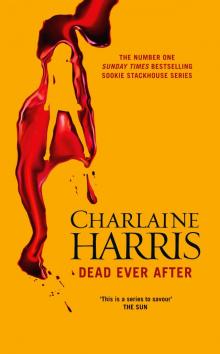 Dead Ever After
Dead Ever After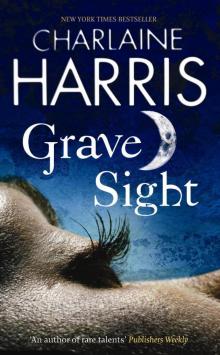 Grave Sight
Grave Sight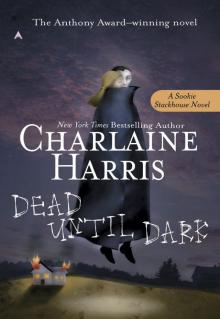 Dead Until Dark
Dead Until Dark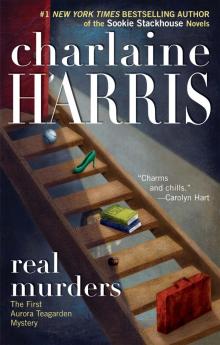 Real Murders
Real Murders Wolfsbane and Mistletoe
Wolfsbane and Mistletoe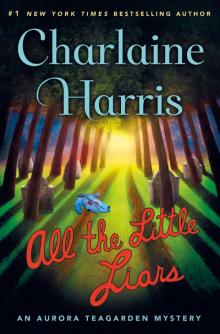 All the Little Liars
All the Little Liars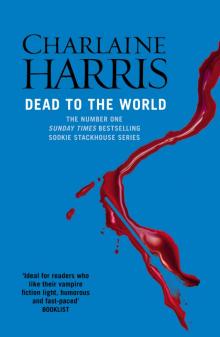 Dead to the World
Dead to the World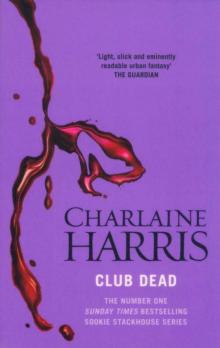 Club Dead
Club Dead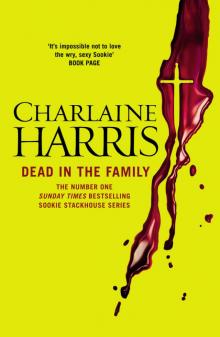 Dead in the Family
Dead in the Family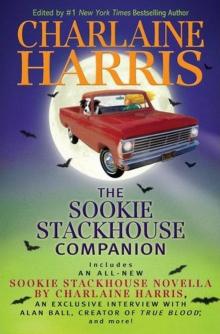 The Sookie Stackhouse Companion
The Sookie Stackhouse Companion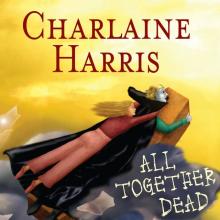 All Together Dead
All Together Dead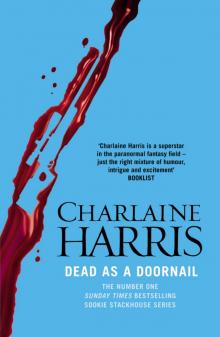 Dead as a Doornail
Dead as a Doornail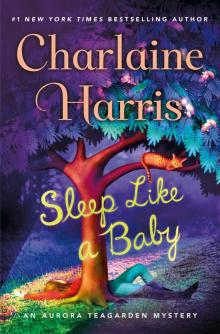 Sleep Like a Baby
Sleep Like a Baby Night Shift
Night Shift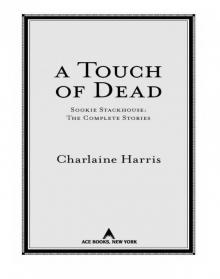 A Touch of Dead
A Touch of Dead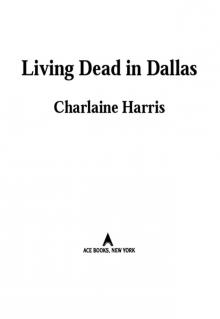 Living Dead in Dallas
Living Dead in Dallas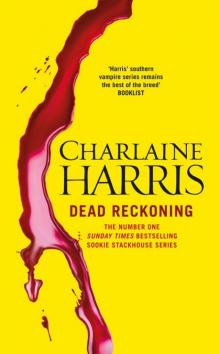 Dead Reckoning
Dead Reckoning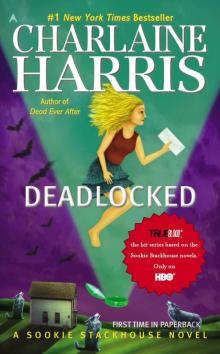 Deadlocked
Deadlocked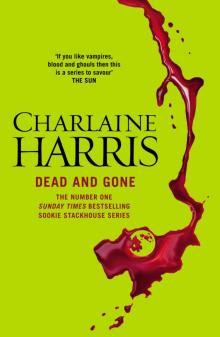 Dead and Gone
Dead and Gone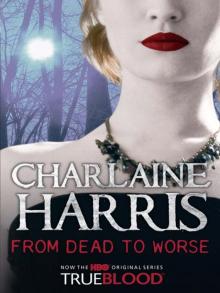 From Dead to Worse
From Dead to Worse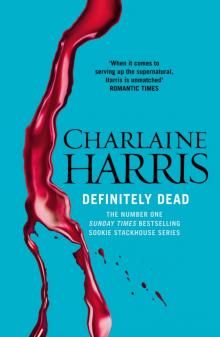 Definitely Dead
Definitely Dead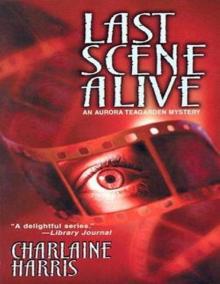 Last Scene Alive
Last Scene Alive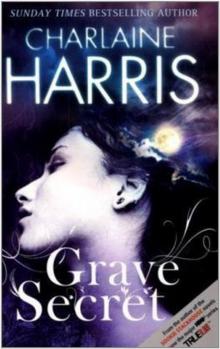 Grave Secret
Grave Secret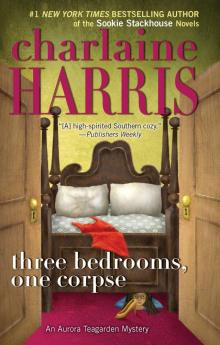 Three Bedrooms, One Corpse
Three Bedrooms, One Corpse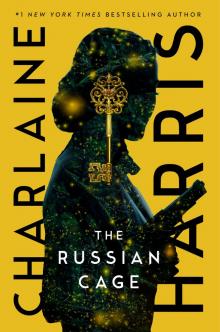 The Russian Cage
The Russian Cage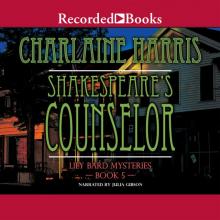 Shakespeares Counselor
Shakespeares Counselor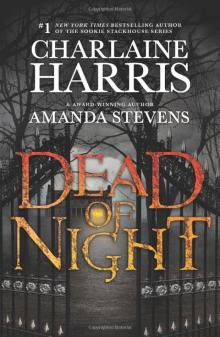 Dead of Night
Dead of Night Shakespeares Trollop
Shakespeares Trollop One Word Answer
One Word Answer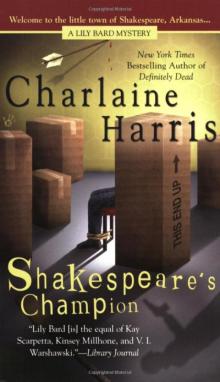 Shakespeares Champion
Shakespeares Champion Shakespeares Christmas
Shakespeares Christmas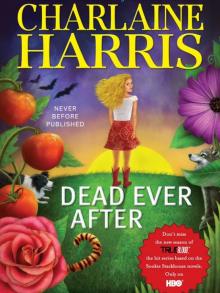 Shakespeares Landlord
Shakespeares Landlord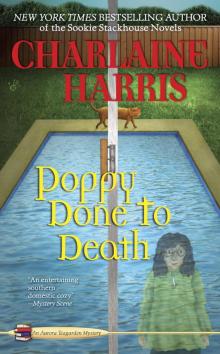 Poppy Done to Death
Poppy Done to Death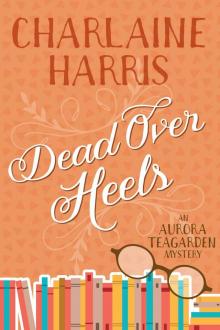 Dead Over Heels
Dead Over Heels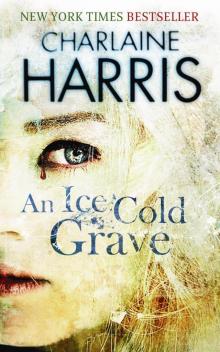 An Ice Cold Grave
An Ice Cold Grave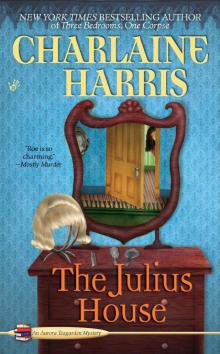 The Julius House
The Julius House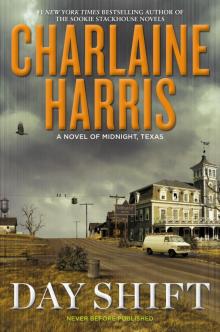 Day Shift
Day Shift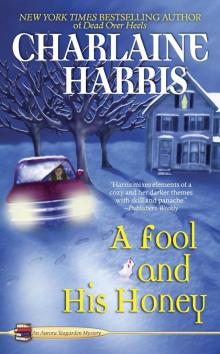 A Fool And His Honey
A Fool And His Honey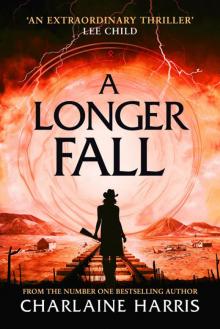 A Longer Fall (Gunnie Rose)
A Longer Fall (Gunnie Rose)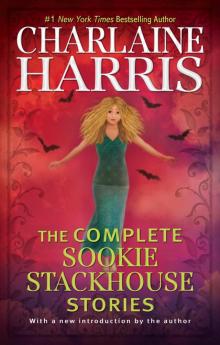 The Complete Sookie Stackhouse Stories (Sookie Stackhouse/True Blood)
The Complete Sookie Stackhouse Stories (Sookie Stackhouse/True Blood)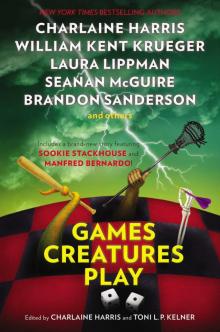 Games Creatures Play
Games Creatures Play Death's Excellent Vacation
Death's Excellent Vacation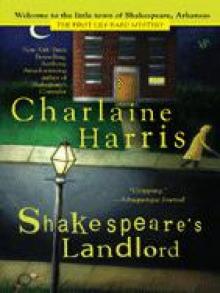 (LB2) Shakespeare's Landlord
(LB2) Shakespeare's Landlord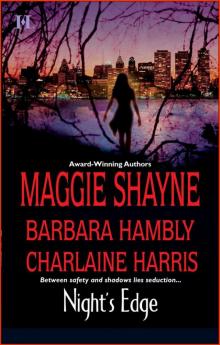 Dancers In The Dark - Night's Edge
Dancers In The Dark - Night's Edge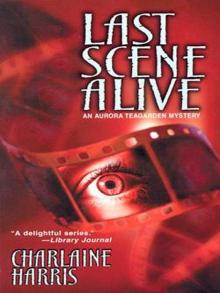 Last Scene Alive at-7
Last Scene Alive at-7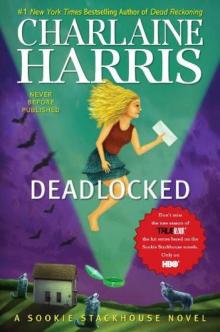 Deadlocked: A Sookie Stackhouse Novel
Deadlocked: A Sookie Stackhouse Novel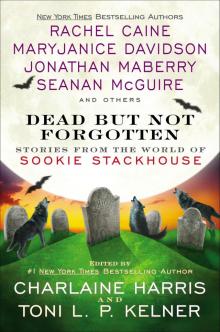 Dead But Not Forgotten
Dead But Not Forgotten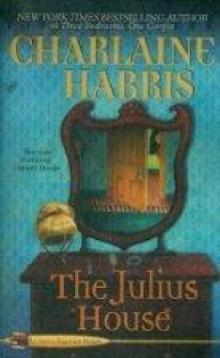 (4/10) The Julius House
(4/10) The Julius House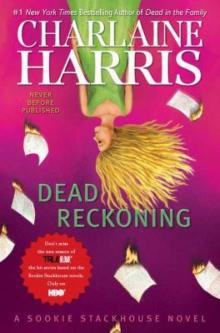 Dead Reckoning: A Sookie Stackhouse Novel
Dead Reckoning: A Sookie Stackhouse Novel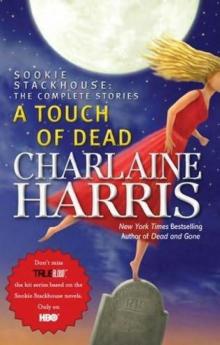 A Touch of Dead (sookie stackhouse (southern vampire))
A Touch of Dead (sookie stackhouse (southern vampire))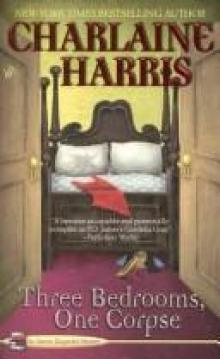 (3T)Three Bedrooms, One Corpse
(3T)Three Bedrooms, One Corpse An Easy Death
An Easy Death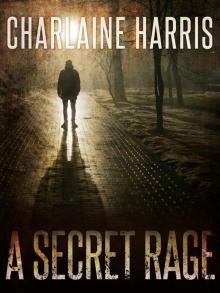 A Secret Rage
A Secret Rage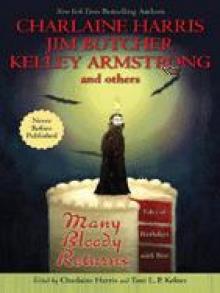 Many Bloody Returns
Many Bloody Returns![Harper Connelly [3] An Ice Cold Grave Read online](http://i1.bookreadfree.com/i/03/25/harper_connelly_3_an_ice_cold_grave_preview.jpg) Harper Connelly [3] An Ice Cold Grave
Harper Connelly [3] An Ice Cold Grave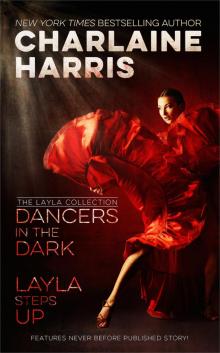 Dancers in the Dark and Layla Steps Up
Dancers in the Dark and Layla Steps Up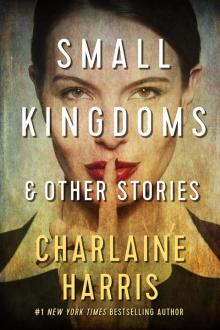 Small Kingdoms and Other Stories
Small Kingdoms and Other Stories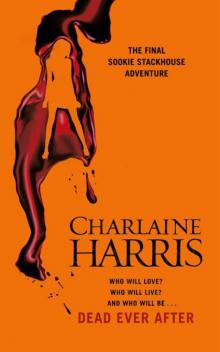 Dead Ever After: A Sookie Stackhouse Novel
Dead Ever After: A Sookie Stackhouse Novel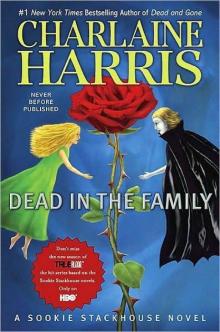 Dead in the Family ss-10
Dead in the Family ss-10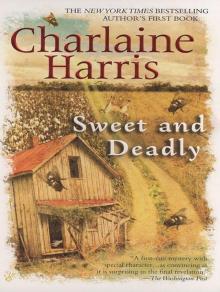 Sweet and Deadly aka Dead Dog
Sweet and Deadly aka Dead Dog An Easy Death (Gunnie Rose #1)
An Easy Death (Gunnie Rose #1)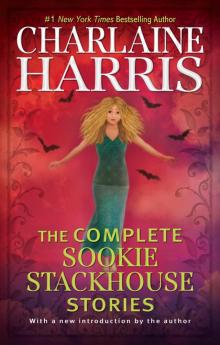 The Complete Sookie Stackhouse Stories
The Complete Sookie Stackhouse Stories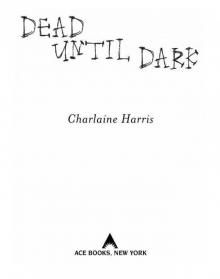 Sookie Stackhouse 8-copy Boxed Set
Sookie Stackhouse 8-copy Boxed Set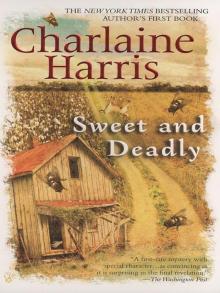 Sweet and Deadly
Sweet and Deadly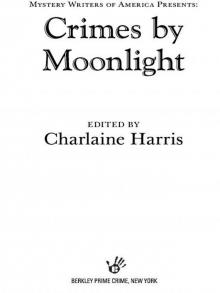 Crimes by Moonlight
Crimes by Moonlight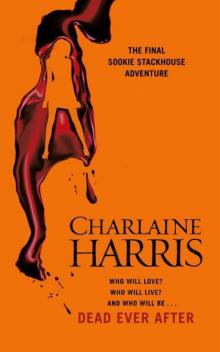 Dead Ever After: A True Blood Novel
Dead Ever After: A True Blood Novel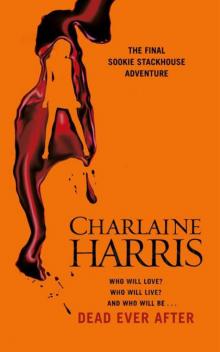 Dead Ever After ss-13
Dead Ever After ss-13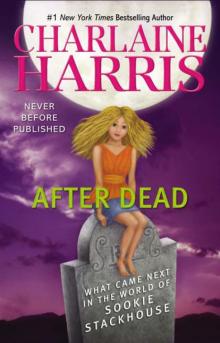 After Dead
After Dead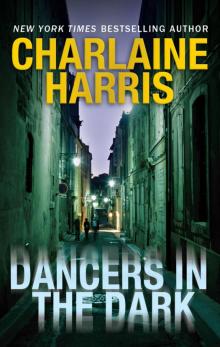 Dancers in the Dark
Dancers in the Dark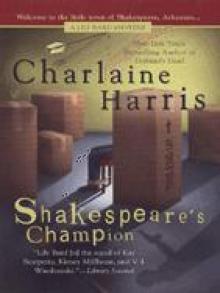 (LB1) Shakespeare's Champion
(LB1) Shakespeare's Champion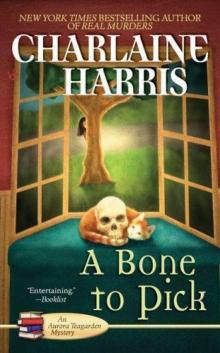 A Bone to Pick (Teagarden Mysteries,2)
A Bone to Pick (Teagarden Mysteries,2)